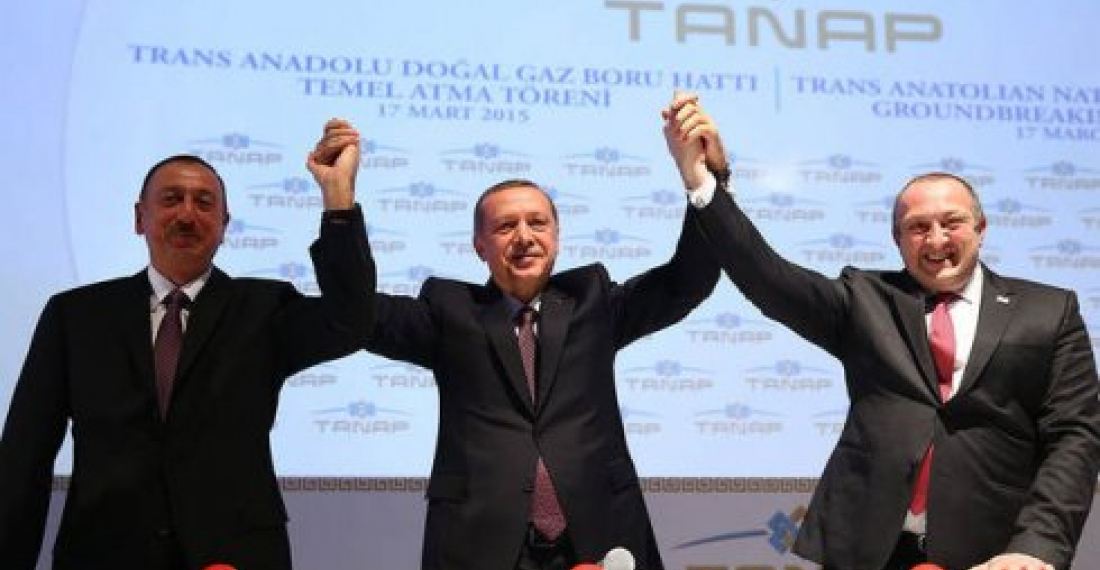The present day Georgian government has returned to the time tested strategy of balancing regional powers to secure the country's existance argues Emil Avdaliani in this op-ed
Modern Georgia finds itself in the position it has been throughout its history - at the crossroads of East and West and therefore of various great powers. In the past, this was an advantage, but it was also a huge burden since geopolitical circumstances in the Caucasus drove numerous regional powers to compete with each other. Romans, Byzantines, Ottomans, Iranians, Russians and others all worked hard to project their influence in the South Caucasus. Therefore, the only tool for Georgia to secure its existence was to maneuver around its bigger neighbors. Georgia nowadays continues to pursue what it has done historically - balance each of its bigger neighbors with another. Centuries ago, when Georgia was surrounded by bigger neighbors, the country was successfully balancing Byzantines against the Sasanians, Ottomans against the Persians. Nowadays it is Russian influence against Turkey, Iran, China and EU. Tbilisi has for centuries used to its advantage these geopolitical combinations, or seeming balancing acts.
However, there are numerous obstacles to this diplomatic maneuvering. Experience has shown that in the South Caucasus sheer military power is, at most times, the biggest tool for promoting own interests, and in the process trumping Tbilisi's diplomatic schemes.
A reinvigorated Europe
Until a couple of years ago, Europe faced serious problems, with the continent under pressure from both internal and external actors. The migrant crisis sparked internal debates on reconstituting the border controls, and there appeared to be problems in keeping a united front through sanctions against Russia and its actions in Ukraine. Brussels also received a blow from the UK's decision to leave the EU. However, the region where the EU's problems appeared to have the most impact was Eastern Europe and the South Caucasus. Ukraine and Georgia, being major aspirants to join the union, were most concerned that an inward-looking Europe would be ever more reluctant to have them as members.
When Emmanuel Macron was elected French president, European unity was much reinstated. If Europe seemed to be a fragile unity almost a year ago, with nationalistic parties gaining momentum all over the continent, today's Europe is, if not entirely cured, nevertheless an entity which has gained a new momentum for its existence.
Indeed, Macron's victory now leaves fewer chances for nationalist parties to enjoy their previous support. It however does not mean that the threat to European unity is altogether extinct for now - simply, Germany and France are now more confident moving Europe towards further integration while standing firm against Moscow, as was highlighted this June when the sanctions against Russia were extended.
A reinvigorated Europe is what Georgia needs, since the country continues to experience military pressure from Russia expressed through its support for pro-Moscow separatist movements in Abkhazia and South Ossetia. Of course, this is not to say that Tbilisi is close to becoming an EU member. Geopolitical constraints remain paramount. From an EU perspective the political situation in the South Caucasus is too unstable. Russian forces are almost surrounding Tbilisi from three sides - South Ossetia, Abkhazia and Gyumri (Armenia). Moreover, the simmering Nagorno-Karabakh conflict, inflammable at any time, puts further brakes on the region's stability.
However, it is in Georgia's core interests to keep all options open. While Tbilisi maintains its western course, having normal relations with Moscow actually serves Georgia's purposes well. In geopolitics it is called a balancing act when the actor tries to have stable relations with all the major powers around it. Russia has been resurgent over the past decade, and despite maintaining a united front against Moscow the EU is still in no position to match Russian military power in the South Caucasus.
Georgia's balancing act?
Thus, Georgia finds itself between its EU aspirations and a strong Russia. A reinvigorated EU could increase pressure on Moscow through boosting financial support to Georgia. NATO could be another tool to influence Moscow's behavior in the region, although membership is a distant perspective. Another way for the Georgian government to balance resurgent Moscow's behavior in the South Caucasus is to strengthen its relations with Turkey and Azerbaijan. Indeed, some fundamental steps towards increased military and economic cooperation between these countries have been made over the past few years.
Yet another actor for balancing out the Russian resurgence could be China's economic role in the region. Beijing has been increasing its influence in the region through investments and trade, and considers Georgia with its vital Black Sea ports of Batumi and Poti as a link for its massive One Belt One Road (OBOR) initiative. Chinese involvement in the region is for the moment limited only to economics, but the deeper Beijing is involved in defending its assets around the world, the bigger is the possibility that China will eventually turn into a more active security partner in the South Caucasus. It is true that Russia and China could also cooperate on numerous issues in the South Caucasus, but Moscow's and Beijing's geopolitical imperatives would eventually be at odds, increasing the likelihood for disagreements.
Thus Georgia, situated between East and West, has again found itself in a difficult geopolitical position, as regional powers compete to project their influence in the South Caucasus. Tbilisi does these days what it has been doing historically - balancing its bigger neighbors with each other. If previously Georgia was successfully balancing Byzantines against the Sasanians, the Ottomans against the Persians, nowadays it is Turkey, Iran, China and the EU against Russian influence.
source: Emil Avdaliani teaches history and international relations at Tbilisi State University and Ilia State University. He contributed this op-ed for commonspace.eu
photo: Azerbaijan Ilham Aliyev (left), Turkish President Recep Tayyip Erdogan (center), and Georgian President Giorgi Margvelashvili (right) during the launch ceremony for TANAP project in Kars, Turkey in 2015 (picture courtesy of Daily Sabah)







